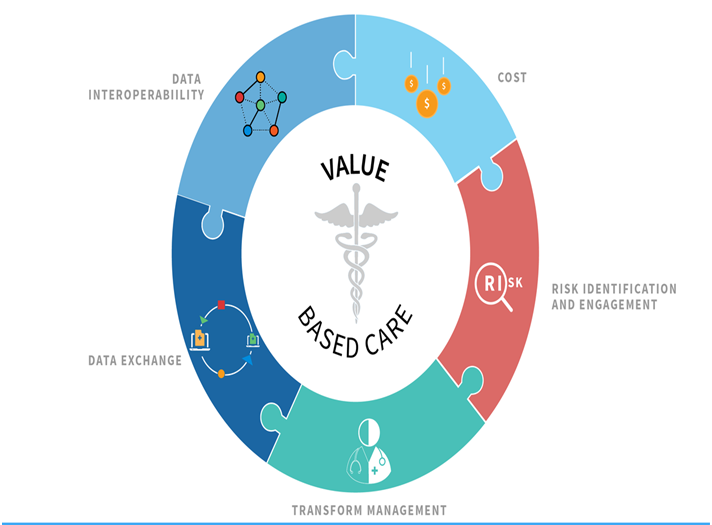The Role of AI in Value-Based Care: Driving Efficiency with Better Outcomes
The healthcare sector is evolving, and slowly but steadily, the focus is shifting from volume towards value, with a clear objective to provide quality care at the lowest price possible. AI is central to this shift, using data guidance to increase efficiency and optimize clinical processes while working to reduce burnout in healthcare.
In this course, Artificial intelligence has already brought several enhancements to the field: both by improving the features of EHR systems and the capabilities of telemedicine, for instance, AI assists healthcare providers in improving the precision & coordination required to improve care experience for both the patients as well as providers.
Present Role of AI in Healthcare
AI is revolutionizing healthcare by improving aspects related to diagnostics, patient treatment, and more. Predictions and early intervention are possible after a thorough analysis of patient data to help deliver personalized care.
Even seamless integrations of Electronic health records have been enhanced by technology enabling effective data processing and storage. On the other hand, clinical decision support tools take patients’ data and get the preliminary medical research done which is then utilized for enhancing diagnostic accuracy and curating the treatment plan for medical cases.
At the organizational level, smooth integration and better interoperability strengthen the processing of medical documents, create warnings against errors, and promote improved efficiency of care delivery.
Care Coordination
Focus on patient-oriented care is a precursor for cumulative value-based results. AI improves the overall interaction among the respective healthcare team and further offers reliable information related to the patient.
Automation in tasks like regular medical check-ups identifies factors beforehand like potential care delays either through canceled appointments or delayed diagnostic tests. It can also create an advisory for readmissions and emergency visits by predicting patient risks before they appear, through predictive analytics. These healthcare AI tools ensure care is continuous and injected with remedies as and when necessary, especially in cases of probable effects

Patient Engagement
Patient engagement has evolved ever since AI brought about a personalized approach to patient treatment and made care more accessible. This has resulted in compliance with the use of prescribed medication & care protocol which further has enhanced the holistic health of patients.
The swift usage of telemedicine has helped immensely, especially in remote regions, and encourages patients to adhere to prolonged treatment while easing the burden on the existing health systems. It has been able to flourish with the adoption of AI algorithms which have increased the accessibility to offer remote consultations.
This change is much more pronounced in terms of chronic disease care, by altering the ways both care provision and access are conceptualized. These milestones enable providers to administer appropriate centralized care at the right time, more so in regions that have limited healthcare access. In conclusion, The continuous integration of AI solutions for healthcare is expected to continue and revolutionize the concepts of value-based care for future generations.



